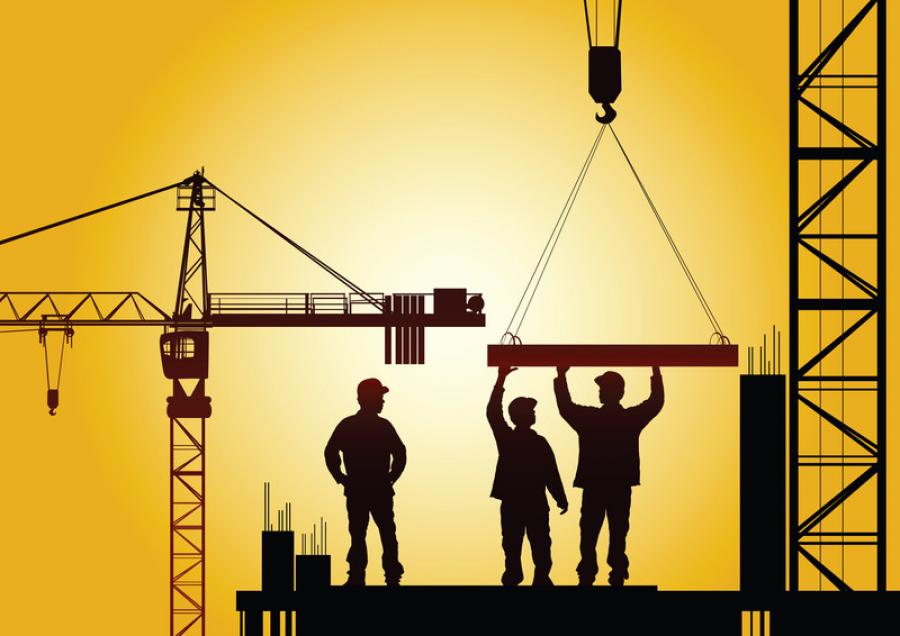Workers need to be aware that they are human, with physical limitations, and that fatigue always wins when one pushes too far.
In a work context, fatigue is mental and/or physical exhaustion that reduces one's ability to work safely and effectively.
The danger is always there. Workers need to be aware that they are human, with physical limitations, and that fatigue always wins when one pushes too far.
Fatigue is more comprehensive than feeling a little tired. In a work context, fatigue is mental and/or physical exhaustion that reduces one's ability to work safely and effectively.
It can happen because of extended mental or physical activity, sleep loss, or disruption of the internal body clock. Fatigue can be caused by work-related, non-work-related or a combination of both factors and can accumulate over time. It can affect safety at the workplace by reducing alertness, which leads to errors and an increase in injuries.
Working in construction requires focus. There are too many critical tasks requiring concentrated effort.
Long hours are part of being in construction, especially during prime construction season. The problems can occur when hours are added to already long hours. Judgment is impaired. Mistakes happen.
Here's a common scenario: The weather forecast says there will be a week of sunny, dry weather before rain returns. Project deadlines have not changed, so with the break in the weather everyone needs to work harder and longer hours to catch up.
Johnny the dozer operator doesn't mind, because he's doing what he does best. He's enjoying the fact that he's making visible progress grading the complex residential site with slopes, curves, cutaways and roads. He's in the zone and clocking 10 to 12-hour days.
On the fourth day, he's feeling good and adds a couple more hours. When he quits for the day, Johnny climbs into his F-250 for his 47-minute commute home — a drive he knows well. If he can go five to 10 miles over the speed limit, he'll be home that much sooner.
Thoughts of his head hitting the pillow were his last before careening off the road.
Sleep experts point out two things with what happened with Johnny. First, people can work long hours if the tasks are engaging, enjoyable and/or challenging. They actually can feel a bit energized while working and may think as Johnny did.
Second, it's when involved in comfortable, predictable tasks after the long stretch of engaging work is when the body wants to transition into restorative sleep mode.
Here are eight suggestions of what construction workers can do to avoid the dangerous issues with fatigue:
• Get moving — Exercise boosts energy levels. It may run counter to the logic of being active when feeling tired, but the heart, lungs and muscles appreciate being used. Even if physical labor is part of the typical workday, an exercise that's different from the work pattern is what's necessary. Those that sit for a living — in a machine cab, in a pick-up, or behind a desk — need to get out and move around every few hours.
• Strike a pose — Yes, yoga is great but in the middle of a job site, it may not be practical. But any stretch-and-hold exercises can help work kinks out and keep the body limber. Hold a stretch for at least 10 seconds and vary over different parts of the body. Arm and head rotations fall into this category as long as the muscles are being stretched or tensed while doing them against the self-created resistance.
• Break it up — Take breaks during and between shifts, even if movement and/or stretches are not involved, the break from the work pattern is what counts. Use this rest and recovery time appropriately to restore energy and alertness.
• Drink water — Dehydration can zap energy and impair performance. Being dehydrated can decrease alertness and concentration. Each morning fill a canteen or an old plastic milk jug with water. Sip from it all day. Urine should be pale yellow or straw colored. If it's darker than that, drink more water.
• Eat better — There's a reason why the food pyramid doesn't include junk food. If the body is accustomed to greasy food, jumbo bags of snacks and Bigfoot-size servings of soda pop, purposely start cutting back on the sizes. A change from an extra-large order of fries to a large- or small-size order can be done as part of the weaning process. Be reasonable with goals. A 100 percent cold-turkey halt to a daily drive-through habit is destined to fail, where reducing the serving size and frequency of visits can work.
• Go fish — Omega-3 oils found in fish are not only good for the heart but are said to boost alertness. Fish oil capsules are available at any health store or online. According to a 2009 study by scientists at Italy's University of Siena, volunteers who took a fish oil capsule for 21 days demonstrated faster mental reaction times. They also reported feeling more vigorous.
• Go to bed — After a long day, wind down and get to bed. If in the midst of a crunch-time construction project with long hours, wind down early.
• Balance it, baby — With juggling a lot of job, project and personal balls even circus jugglers understand that maintaining balance can keep everything afloat. Family, friends, and interests/hobbies can provide perspective, support and release from workplace demands. Have a life outside of work.
Fatigue is usually a temporary situation brought on by overdoing it on a particular day or group of days. It can be lessened or avoided by using some of the measures mentioned. However, persistent tiredness also can be more a long-term problem and interfere with the ability to function on day-to-day basis. Good lifestyle choices, including a healthy diet, exercise and sleep management, should eliminate long-term tiredness, but if fatigue persists, check in with a doctor.
Today's top stories











